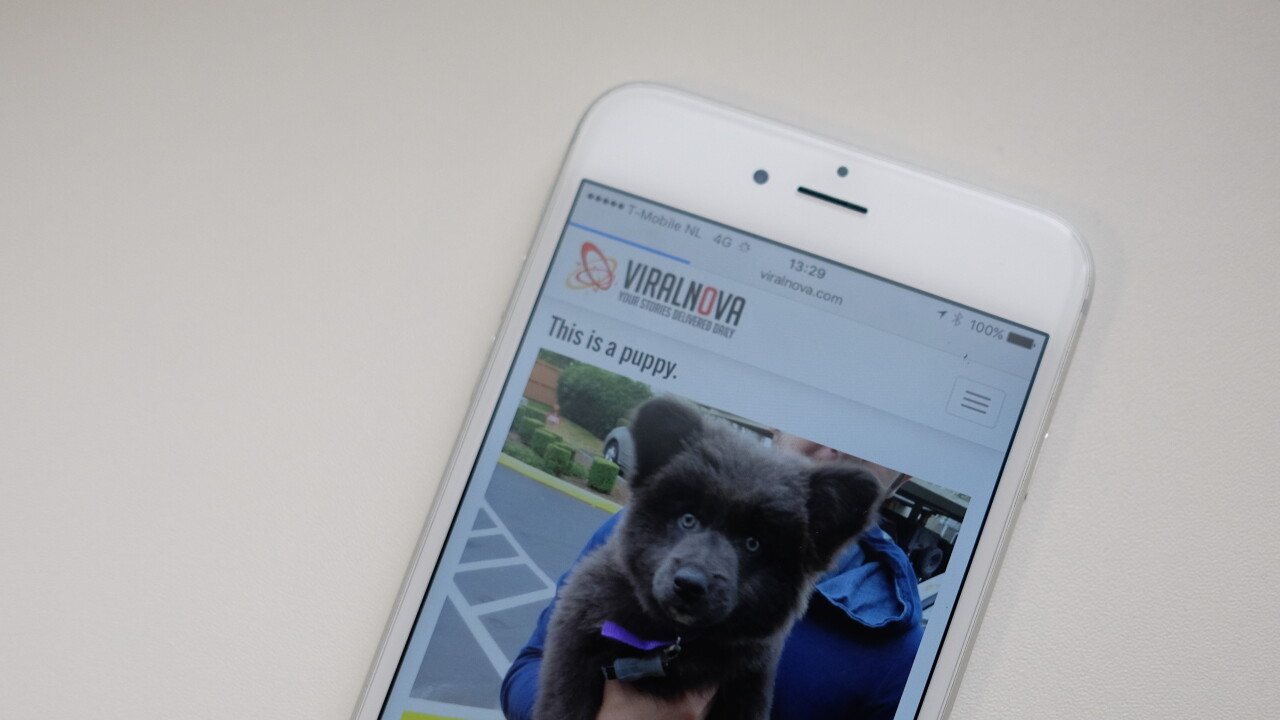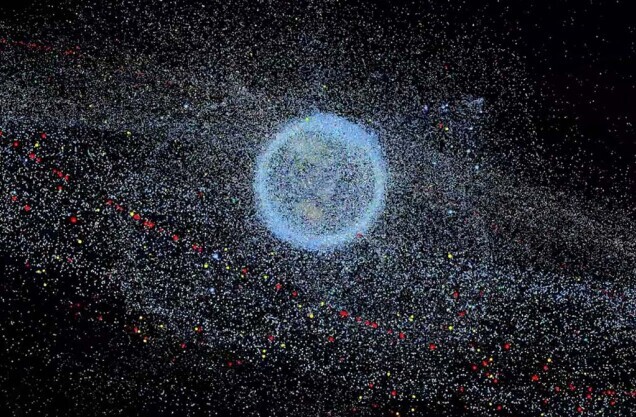
If you spend any time on social media, particularly Facebook, you’ll have come across ViralNova, which has just been acquired by Zealot Networks. The social content site is a dominant force in finding and repackaging stories for clicks.
But both the site’s creator, Scott DeLong, and its new parent company – led by Danny Zappin, a former YouTube star turned Maker Studios co-founder (who did well from Disney’s $500m acquisition of the firm) – balk at the term ‘clickbait’, which has stuck to ViralNova from the start.
But it’s hard for a property described by New York magazine as the city’s “most cynical, amazing, horrific, and ingenious media company” to shake that tag. It’s a question I’ll come back to. But first…
From ‘no we’re not selling’ to ‘take me, I’m yours…”

Founded in 2013 by DeLong as a one-man operation, ViralNova grew quickly. It now claims 70 million unique visitors a month, bringing in more than 120 million page views.
By December 2013, its founder was already talking about selling, as he’d done in 2012 when he offloaded Christian content site Godvine to Salem Communications for $4.2 million.
But in March 2015, DeLong seemed to have changed his mind, telling the press that ViralNova wanted to stay independent, after bringing in Sean Beckner, the founder of mobile marketing firm Frontflip, as CEO.
Which brings us to today, with ViralNova gobbled up to become the latest appendage of Zealot’s many tentacled media monster. Why the change of heart?
Here’s the way Beckner tells it:
We’d never taken on extra investors. We were always privately funded. When Zealot reached out to us a few months ago, it was unsolicited. We weren’t trying to sell, but we were intrigued by what it was building.
Think something like Vice, which is also strong in video and TV. Zealot has a holistic approach to serving brands through music, video etc. We could see how it could speed things up for us overnight. So we joined forces.
So can we expect ViralNova TV to join the likes of TMZ and the aforementioned Vice on our television sets? It looks that way:
We’ve always done a lot of video. We’ve had months where we’ve done 30 million hits on YouTube alone. We’ll definitely be growing and building our video production. We’re looking for other distribution partners, whether it be TV or otherwise.
As for Zealot, it wasn’t just after ViralNova’s most obvious asset – that audience hungry for social content – it also craved the technology bringing all those eyeballs in. Its CEO Zappin – who was ousted as CEO of Maker and later sued it during its acquisition by Disney – says:
They have great audience data which is helpful for media sales. Their ability to reach large audiences across social platforms in a way that can measure how content can spread is very valuable.
Soft stories, hard metrics

If you could crawl behind its front page filled with emotive stories and get your hands on the guts of ViralNova, you’d discover a lot of in-house tools built to test the effectiveness of its gut-punching, heart string-tugging tales.
DeLong told me: “Our in-house tech is great. We’ve built it specifically for what we want to do. We have a whole suite and over half of them are ones we’ve built ourselves.”
Beckner added: “We have own custom CMS, A/B testing tools, analytics – they’re all within our system. We can add other Zealot publishers and brands to our platform as well as offering it to its clients.”
While DeLong is proud of the technology, he pushes the idea of ViralNova as a place built to surface new talent:
I love the tech we’ve built, but for me, it’s when we find an artist out there who is doing something cool and we change their lives by bringing them a following that allows them to do their work full time. We’ve really gone all in on that approach in the past 6 months.
One person’s ‘skimming the social Web for free content’ is another’s ‘giving artists a following.’
I asked ViralNova’s founder about clickbait, you can guess what happened next…
So, to the question of ‘clickbait’, a term which has got a lot of people both in and outside the media business confused. For me, the true definition is not simply a provocative or entertaining headline but one that fails to deliver on the promise it makes to the reader.
DeLong is audibly frustrated to be answering the old question again and says:
At the end of the day, if our audience likes the piece that’s all that matters. Our audience isn’t the critics. We’re not trying to compete with The New York Times, that’s not us, though being mentioned in the same sentence is a good thing. The social publishing space has become so broad.
I think how things have changed the most over the last few years is that the whole “this will shock you” approach got so saturated. Curiosity in the headline is still the main focus but without the overhyping “OMG”, “this will shock you” type approach.
We’re trying to be smarter about it. When you’re competing with thousands of potential stories, you need to stand out. We’re backing off from the over-the-top approach.
Bringing up the front page of ViralNova just before I wrote this sentence, gave me this…

…and while DeLong may consider it a more subtle approach than the site’s earlier efforts, it’s still heavily predicated on a formula using ‘curiosity gap’ headlines (i.e. where some information is deliberately omitted) and content featuring cute animals, cute kids or a cute combination of the two.
Over at Zealot, Zappin is unsurprisingly sanguine about the ‘clickbait’ question:
I think it’s is overblown. Anywhere on the internet, it’s a competition for eyeballs. If the headline is relevant and people share it, I wouldn’t consider that a clickbait situation.
It’s almost like movies – if the trailer is good, you’ll go and see it. ViralNova’s content is measured on how people are engaging and sharing it. Everywhere you look it seems like some headline that’s trying to gain your attention.
None so zealous as a convert

If you’ve heard of ViralNova, but are new to Zealot Networks, that’s not surprising. It’s been gobbling up other companies since it was founded a little over a year ago by Zappin and a crew made up of other Maker studio alumni.
As well as online content, it has its tentacles in music production and distribution, talent management, video, and content licensing among among other areas. It started out with $25 million from Zappin and other ex-Maker executives, then took investment from British media group ITV in December 2015 and is now raising another round.
Zappin says:
I started as a content creator, but we don’t want to be reliant on the YouTube platform. We’re creating a broad media and entertainment company. We’re also working with a lot of individual entrepreneurs and companies that have an incentive to work together.
From my past experience, I didn’t want to build a company from the ground up where we were burning a lot of cash. Acquiring companies that already have great teams and are already profitable seemed like the right way to build it.
ViralNova ticked both of those boxes. All of Zealot’s acquisitions so far have been part-equity, part-cash deals. Built on the back of a relatively small team of 25, ViralNova claims to be on track to exceed $35 million in revenue in 2015.
Given his (partly) negative experience with Maker, I wondered how Zappin views the potential for Zealot itself to be acquired. His answer was the standard one from a CEO in ‘aggressive growth’ mode:
We’re trying to build something sustainable and profitable. We’re building a company with the aim of going public, but we will look at offers that make sense.
He believes that YouTube’s position in the market is no longer as entrenched as it once seemed:
I always felt it would take another huge platform like Apple or Facebook to compete with YouTube. It would be hard for a small company to come out of nowhere.
Other players like Facebook are getting into video and I think they’ll have a lot of opportunity there. YouTube is really over saturated. The volume of content is growing at a much faster rate than the eyeballs. It’ll be interesting to see what happens with Facebook video and Apple in the streaming space.
And for ‘creators’, it’s getting harder:
I think it’s just as hard to break into YouTube as it is to break into Hollywood. I think being an online creator is a very different mindset. You feel responsible for your audience more than traditional stars. If an actor is on a TV show and it gets cancelled, he doesn’t take that audience with him.
It’s a unique situation that Hollywood is finding hard to understand. The ones that do crossover find that the same skill sets don’t neccessarily apply. I don’t think YouTube will be a funnel for traditional stars necessarily, I think you’ll find a lot of people who remain successful for a long time.
If success in 2015 is attention – and there’s plenty of evidence to suggest it is – then ViralNova is unquestionably one. While media pundits still spit scorn in its direction and turn their dewy eyes to BuzzFeed, with its heavy reliance on a war chest of VC money, the once and future king of clickbait is about to happily settle onto a new throne.
Read next: Everything you know about modern fame is wrong and this site has the data to prove it
Get the TNW newsletter
Get the most important tech news in your inbox each week.




